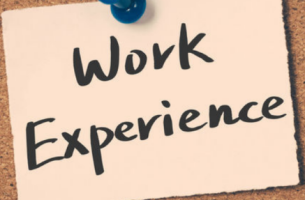
Wayne Brophy
Dec 11, 2019
Can Artificial Intelligence help you discover the best talent?
Artificial Intelligence is the hot trend in recruitment screening but it’s usually at the application and interview stage. But can your recruitment KPIs improve further by predicting the personality of all your LinkedIn connections? And should you go there?
At Cast UK we’re big on self-improvement. In fact, our What’s App group usually has one or two must-read self-improvement book recommendations each month. (As well as binge-worthy Netflix programmes).
And technology is one area we’re really passionate about. So when one of our employees stumbled across Crystal Knows it got a very enthusiastic shout-out in the group. And soon many others in our recruiter circles was just as excited.
So what is Crystal Knows?
Crystal Knows is a piece of Artificial Intelligence software that analyses a person’s online profile and predicts their personality based on the DISC model. It then tells you HOW to communicate best with them depending on why you’re contacting with them. (And it’ll correct your messages as you type).
3 ways it can help improve your recruitment KPIs
1. Personalising InMails for a better reception
If you’re sending an InMail to an active or passive candidate, Crystal Knows gives you specific hints and tips depending on why you’re contacting them (one of these being approaching candidates about a new opportunity). It’ll also underline any words or phrases that are likely to put off a potential candidate.
2. Helping identify candidates with the right cultural fit (or add)
We’ve written before about the importance of cultural fit hiring (and why it should really be ‘cultural add’). One of the pros of psychometric testing is that it can help provide a more objective view of whether a candidate can complement the team dynamic and skills-sets, rather than based on gut feeling alone.
Discover the tricks of interviewing for cultural fit well, with our webinar replay: Expert advice on interviewing candidates for cultural fit (that will add diverse ideas and perspectives to improve your bottom line)
Crystal Knows’ insight into someone’s personality type prior to the hiring process, so it can be a good method to build up talent pools on LinkedIn and improve your future recruitment KPIs.
3. Preparing for an interview
These days, the candidate experience can be the difference between a job offer being accepted or rejected. Before the interview, see how your personality traits align with the candidate and what motivates them. That way, you can adapt your communication style to find more common ground and sell in the aspects of the role that would most interest them.
Another added benefit: retaining your best employees
Crystal Knows also prompts you to reconsider certain keywords or phrases in email as well as on LinkedIn - quite a handy tool for managers (or any employee) trying to communicate well with their team.
But should you proceed with caution?
Crystal Knows certainly got us all excited. In fact, it went viral in our extended recruitment cycles because we all want to get the edge when sourcing the best candidates.
Yet, you’ll always have to tread with caution:
- It’s only a prediction.
- Some people’s profiles are written by the marketing department and so it won’t reveal much about their real personality.
- Psychometric tests are best analysed in the right hands, by those who understand the yin and yang of strengths and weaknesses. There’s a reason that those who interpret and feedback on psychometric test results need to undertake extensive training by the British Psychological Society (BPS). If someone does have the right skills, it’s therefore wise not to dismiss them without further screening.
I don’t know about you, but there’s also something a little unsettling about knowing that your strengths and weaknesses are out there for all the world to see. There’s a reason that people struggle with the interview question, “What’s your biggest weakness?”
Take a Motivator Personality type like me. According to Crystal Knows some of my Motivator strengths are:
- Offering lots of verbal encouragement when developing others.
- Quickly improvising based on intuition.
- Understanding how to motivate other people to take action.
Ooh, I sound great! But would I want to ‘admit’ to these weaknesses? At least not without a chance to explain myself?
- Getting distracted by multiple new ideas and failing to focus.
- Spending more time interacting with people than on completing tasks.
- Having trouble following consistent, predictable routines.
Everyone’s strengths are usually balanced by weaknesses that they learn to work on. A decent hiring manager or recruiter will know this and know how to balance existing strengths and weaknesses within teams.
To be fair to Crystal Knows, their whole ethos is built on the premise that you effectively can’t have one without the other - it’s about knowing how to balance teams so that a person’s strengths can shine and their weaknesses are less of an issue. (Just take a look at their blog, The Personality Behind WeWork’s Downfall.)
What do you think? We’d love to know your thoughts.
Find out more about hiring the people with the right cultural fit for your organisation with our WEBINAR REPLAY : Expert advice on interviewing candidates for cultural fit (that will add diverse ideas and perspectives to improve your bottom line).



